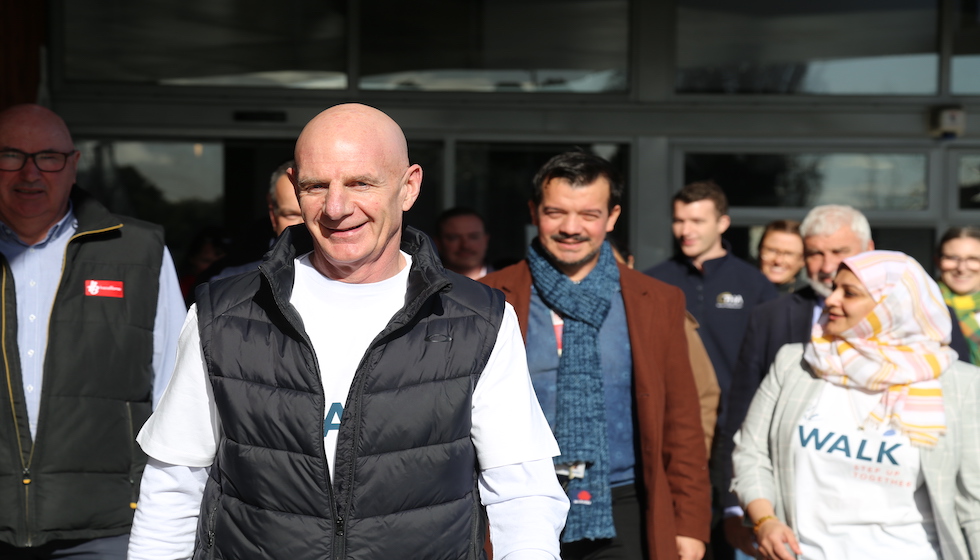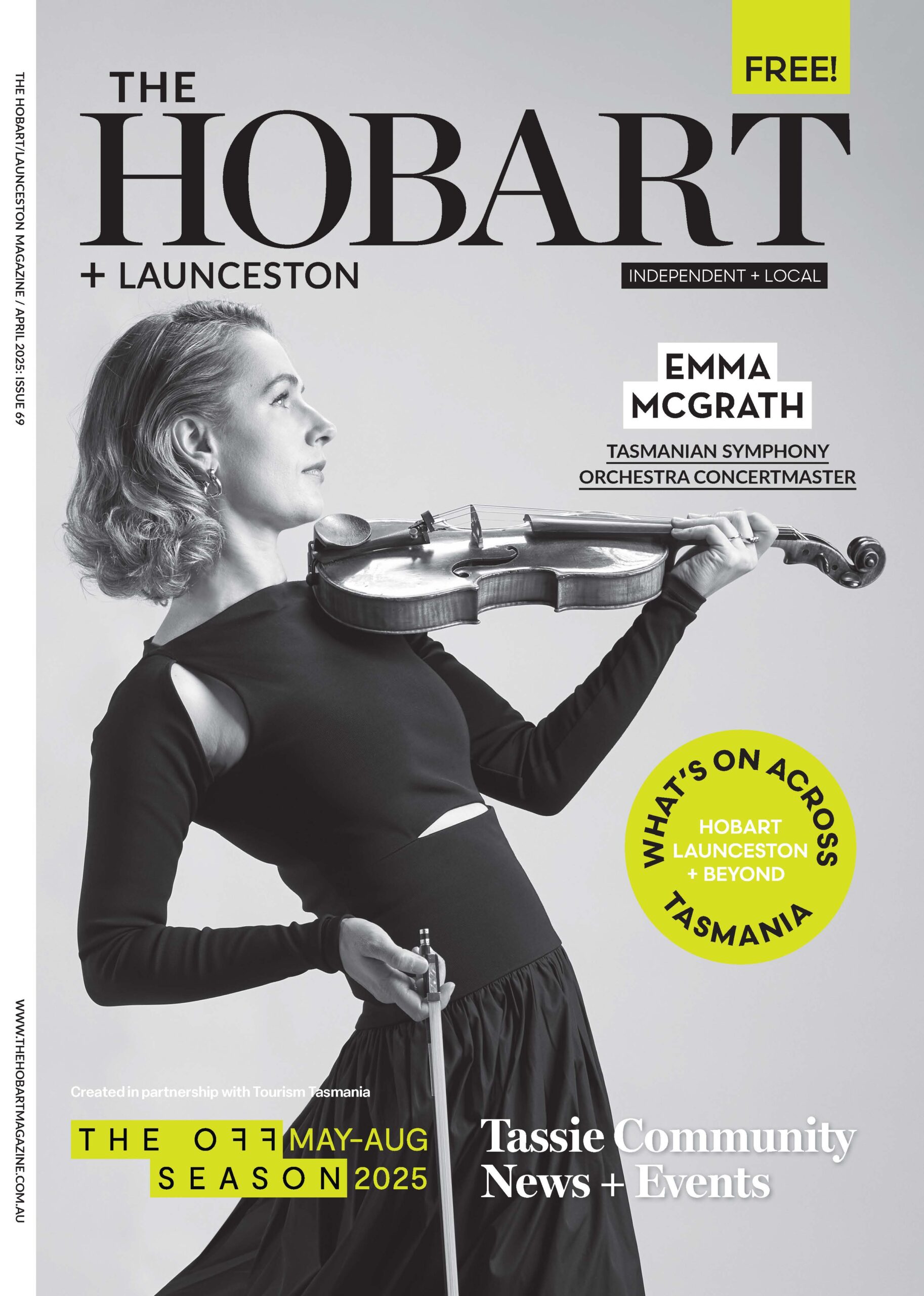Politics, Fitness, Migration: Peter Gutwein’s Story
by Hobart Magazine

Since stepping back as Premier, Peter Gutwein learnt to slow down and spend time with his family. In that time, he worked on his health, and became Chair of Migrant Resource Centre Tasmania. A migrant himself, he is now putting his fitness to the test for an epic walk to raise awareness for Tasmania’s migrant and refugee communities.
You were the Premier of Tasmania through a difficult time. How does that experience influence your work and life today?
The lessons I learned when Premier stand me in good stead today. Not only were we dealing with a worldwide pandemic that placed thousands of lives at risk, we also had to ensure the orderly running of the state and maintain key critical services. My skill set was broad before I took on the role, but thankfully I had never had to deal with the challenge we faced then.
My strategic thinking, planning and decision-making capabilities were all tested and lifted to another level by virtue of the scale and complexity of what we were dealing with, and I had to become a more decisive, inclusive and collaborative leader. What was important to me was remaining authentic, true to my values and humble beginnings, and I tried always to treat people regardless of their circumstance or background, fairly and with respect.
These values were important to me, whether it was implementing measures to grow Tasmania’s economy, protecting Tasmanians from the COVID-19 pandemic, supporting economic recovery in the aftermath, protecting our vulnerable or providing hope and opportunity for Tasmanians, including those who move to our state in search of a better life.
That remains as true today as it did then. Now as Chair of MRC Tas and as a director and strategic adviser to world leading companies, in both advanced manufacturing and in the renewables space, I am focused on harnessing the best opportunities possible for Tasmania and the people who live here.

What did you do after stepping down as Premier?
I stood down to spend much needed time with my family. The catalyst for this was realising that in more than two years, the longest time consecutively I had spent with my family under the one roof was a period of seven days when we were in COVID isolation in late March 2022. That was tough. Now it’s the simple things I love doing, eating meals with family, watching Netflix shows with my wife, spending time with kids as they play sport or just going for a walk with them. I also focused on my health. I set a goal to get in the best shape I possibly could and have lost some 16 kilos, with all the health indicators suggesting I’m now in the best shape I’ve been in the last 30 years.
You’re a Lee Child fan. What are your thoughts on the Reacher show?
I really enjoy Jack Reacher stories and I quite enjoyed the Reacher show, however in my mind Jack was closer to a Liam Hemsworth type than an Alan Ritchson. I like Jack’s indestructibility, and also his clear but at times challenging moral code.
You’re a black belt in Tae Kwon Do. How does this martial art inform your everyday life?
It helps me in many ways. The training itself helped with confidence, discipline, stress relief, self-control and resilience – which are all valuable skills in everyday life, including work, relationships and personal challenges. One thing about the martial arts that people may not realise, is the strong focus it has on social connectedness and instilling respect for self and others, and how it can enhance relationships in everyday life.
What does fitness mean to you?
Fitness for me is not just a lifestyle but a life-goal. Sadly, I have lost too many of my immediate family to illness and chronic disease, and I am acutely aware of the important role fitness and wellbeing can play in helping to prevent this. Every week there are 168 hours, and I set aside seven of those hours for myself each week. I usually get up before 6am each day and have a morning routine that includes walking/gym and some breathing exercises. I think mental fitness is also extremely important. I believe that what we think has a direct impact on our lives and our health, our relationships and our friendships. I set goals and lay out plans, and have used positive affirmations daily for more than 30 years to support me mentally to achieve the things that are important to me.
You are currently the Chair of the Migrant Resource Centre Tasmania (MRC Tas). What does it mean to you?
I was a migrant to Tasmania, arriving here when I was four years old from the other side of the world. My father was an Austrian/Yugoslav and my mother British. They came here looking for a better life for themselves and more opportunity for their kids. What many Tasmanians don’t realise is that 40 percent of Tasmanians are from a migrant background and with more than 155 languages spoken in Tasmania, 1 in 5 families speak a language other than English at home.
As Chair of MRC Tas, I am focused on ensuring the organisation is in the best position possible to provide support and services to migrants and refugees seeking to settle here, including employment and language support, community programs and access to essential services to help them navigate the challenges of resettlement. I have to say the team at MRC Tas does a brilliant job, however I am finding there is always more that can be done.
Sadly, MRC Tas is seeing too many reports of racist behaviour in our communities, which is unacceptable and heartbreaking. When I was a migrant child in the 70s and 80s, racism was very prevalent and sadly, at times, it remains the case today. Our migrants and refugees then were from many places including Austria, Yugoslavia, Italy, Holland, Poland and England to name a few, however, today these people are now firmly part of our communities, our families, our workplaces, and one was fortunate enough to even become a Premier. Today our migrants and refugees mainly come from countries such as China, Africa, India, Nepal, and Afghanistan, and what we need to remember is that they too are a part of our communities, our families and our workplaces, and they like others in the past simply want to be a part of our community to build a better life for themselves and their children.
What is it like for migrants trying to settle in Tasmania?
Many of those from our migrant and refugee communities face challenges settling here, even though they have already overcome enormous personal challenges just to get here. Just like in the past, language, customs, cost of living, stereotyping and the broader acceptance by our community are all hurdles to overcome. Our migrant and refugee communities are very important for our state and its future. They bring skills and they help us all become more diverse and inclusive, which promotes innovation, creativity, and entrepreneurialism. This in turn helps Tasmania to be economically stronger and more productive, while at the same time strengthening our understanding of diverse cultures, which gives us global thinking and greater compassion.
You are preparing for a charity walk this month – The Walk, Step up Together. Whatare you going to do, and why?
From 9 to 16 June I’ll be putting my fitness to the test and walking across Tasmania for a great cause – The Walk, Step up Together. This will be a challenging 350km walk from the MRC Tas Burnie office to MRC Tas Glenorchy office over eight days to raise awareness and funds for a more inclusive and compassionate Tasmania. Most days I’ll be averaging around 40-50 kms.
The Walk, Step up Together aims to highlight the importance of Tasmania’s migrant and refugee communities and generate a positive conversation about the contribution they make. It’s also a symbolic challenge of the broad range of challenges faced by our migrant and refugee communities, and an opportunity to showcase the strength of diversity in our state, and that by being inclusive we are all economically and socially better off.
We want this positive conversation to be enduring and are calling on individuals, as well as sporting and business organisations to get behind this cause and support The Walk, with an aim to raise a minimum of $50,000 to increase education, awareness and support, to build a more harmonious community.
Along the route members of Tasmania’s migrant and refugee community will join in and share their stories. We’ve already had incredible support from organisations across Tasmania who know that a diverse and inclusive workplace makes their organisations and communities stronger. This includes organisations such as the Tasmanian Hospitality Association, Hazell Bros, Incat, JackJumpers, The Tassie Devils, Football Tasmania, AFL Tas, Cricket Tas, Basketball Tas and Netball Tas, and I’m just encouraging as many Tasmanians and organisations to come on board and join The Walk community as possible.
How can people donate?
Through the MRC Tasmania website, www.MRCTas.org.au which has a dedicated donation link for The Walk.


